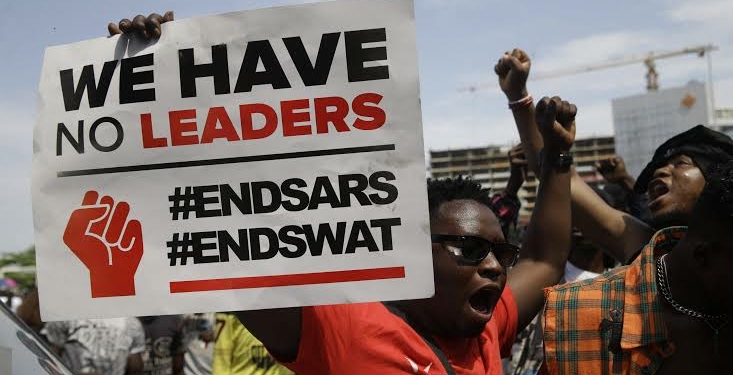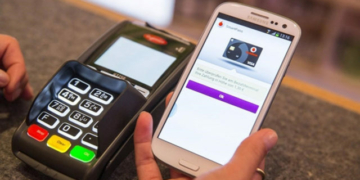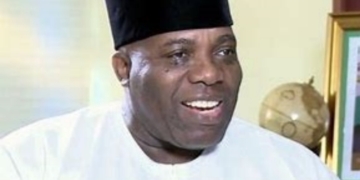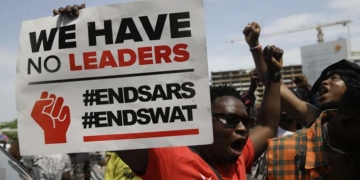Every special date in Nigeria has a story. October 20 is no different. It has a story; a tale of repression and suppression. What happened?

The Nigerian Army on October 20, 2020 violently repressed a peaceful protest at the Lekki toll gate and allegedly shot at young people demanding for the end of SARS – ‘Special Anti-Robbery Squad’ over brutality, extortion and unlawful killings.

This particular date is highly revered by a group of young Nigerians who strongly believe that the country through her military waged war against her future (citizens).
Following grave allegations of killings by the military, the Lagos State government set up a Judicial Panel of Inquiry and Restitution on the Lekki Toll Gate shooting incident and cases of police brutality as well as human rights violations to investigate the tragic incident.
From function to disfunction
The Special Anti-Robbery Squad of the Nigeria Police Force was created in 1992 to tackle armed robbery as a result of repeated cases of theft in Lagos. These undercover operatives under this Squad were tasked with the responsibility of apprehending criminals with plain clothes and vehicles.

Early 2002, the mandate of SARS was enlarged to accommodate apprehension, investigation and prosecution of armed robbers, hired killers, murderers, ritualists among others and the scope of the squad became widen, moving to other states within the federation.

Following its acceptance and widen scope of operation, some operatives within the squad abused the powers and became tools of oppression and dispute settlements among elites.
Aside mounting road blocks for bribe collection and extortion, they also engage in extreme torture resulting to grave physical abuse of suspects.

Unlawful arrest, extra judicial killings of perceived suspects and attempts to become judges in some cases without proper prosecution.
From disfunction to public disorder
They say wickedness is like a food, the more the intake, the more the gut. Tales of victims of unlawful arrest, extrajudicial killings, extreme torture surfaced, forcing activists and human right bodies to closely monitor the activities of the squad.
In 2009, there was a viral report of disappearance of six men from a police custody in Port-Harcourt. The news of 35 people allegedly killed by SARS operatives whose dead bodies were found in a river in Anambra fuelled active participations of citizens in the demands for the disbandment of the squad.
From the discovery of a detention called the ‘Abbatoir’ in Abuja where over 130 detainees were living in overcrowded cells to reported cases of extrajudicial killings by these operatives to viral videos which captured some SARS operatives killing young Nigerians, all these incidents forced several young Nigerians to come in large numbers and demand for the disbandment of the anti-robbery squad and total review of the Nigeria Police Force.
From public disorder to protest
Calls for the disbandment of SARS – Special Anti-Robbery Squad started gaining momentum via social media especially Twitter. Victims of SARS operatives shared their sad experiences and public sympathy was at the highest level.

However, the entire scenario became heightened on October 4, 2020 when a video showing SARS officers dragging two men from a hotel and shooting one of them emerged and broke the internet.
Few days after the video went viral, several young Nigerians stormed the streets, leading to continuous and heavy protests across major cities in the country.
Young Nigerians gathered at the Lekki tollgate and protested for days before they were repressed by armed soldiers. Whatever happened on October 20, 2020 between these protesters and Nigerian Army remain unclear as at the time of filing this report as several grave allegations were levelled against the army.

Out of many allegations levelled against the army, two were obvious. That the army violently repressed the protesters and shot at some protesters which led to degrees of injuries.
Key findings from report submitted by #EndSARS judicial panel

The Lagos State Government set up a panel which comprises of Doris Okuwobi, a retired judge as chairman and following members; Ebun Adegboruwa, Patience Udoh, both representing the Civil Society, Taiwo Lakanu, a retired deputy inspector general of Police, Segun Awosanya, human rights activist, Olutoyin Odusanya, director, Lagos Citizens Mediation Center, and Temitope Majekodunmi, a youth representative.
The panel report showed that there were 48 casualties of the shooting incident, out of which nine people were dead, four were presumed dead and 24 were injured.
It revealed that Lekki Tollgate incident was a massacre, the army shot at protesters on October 20, 2020, the police also shot at protesters that same night.
It added that LCC withheld and tampered with useful evidence of what transpired at the scene of the incident.
According to the panel report, the soldiers were found to have parked their vans parked at the Lekki Tollgate and removed as many bodies and corpses of the fallen protesters which they took away with their vans.
One of the protesters who was shot and taken for dead, Olalekan Sanusi, who eventually escaped to narrate his ordeal and experience stated that 11 corpses were in the van, where he was placed and presumed dead.
The panel also highlighted recommendations such as holistic police reforms covering welfare, training and proper equipping of policemen and their working environment.
The panel also highlighted sanctioning of the officers of the Nigerian Army and the Nigerian Police Force respectively who participated in the shooting, injuring, and killing of unarmed protestors at the Lekki Toll Gate.
Others are; development of a more robust engagement between the Youth and the Government, Setting up of a Standing Committee/Tribunal to deal with cases of Violation of Human Rights by security agencies and a trust fund to settle compensation awarded by such committee and tribunal and a public apology to #EndSARS protesters who were killed, injured and traumatized by the incident.
Seven key highlights from Lagos White Paper on #EndSARS Panel Report
Following the submission of the judicial panel report of #endSARS, Governor Babajide Sanwo-olu constituted a four-member committee to come up with a white paper on the recommendation of the judicial panel.

Here are the key highlights from the white paper:
i) The findings of the Judicial Panel of Inquiry that nine (9) people died at LTG on October 20, 2020, from gunshots fired by the military were based on ‘assumptions’ and ‘speculations’.
ii) The inconsistencies and contradictions in the entire Judicial Panel of Inquiry report concerning the number of persons who died at the Toll Gate on October 20, 2020 and the cause of death, rendered the judicial panel’s findings and conclusions thereon as totally unreliable and therefore unacceptable.
According to the government: “The only victim of gunshot injury from LTG was picked up at 7:43pm on 21st October 2020 after the curfew commenced (see page 99). Furthermore, there was no shred of evidence regarding who shot him.”
iii) On the panel’s recommendation that disciplinary actions be taken against officers including Col. S.O. Bello and Major- General Godwin Umelo, who refused to honour the summons of the panel to frustrate the investigation, the State Government as indicated in the White Paper, said it would also forward the recommendation to the Federal Government and the NEC as well as the Nigerian Army for their consideration.
iv) In the recommendation made by the judicial panel that the Lekki Toll Plaza be made a memorial site for the EndSARS protest by renaming to “EndSARS TOLLGATE,” the Lagos State government said it would rather designate a park in the state and name it “Peace Park.”
v) In response to the panel’s recommendation that October 20 of every year should be made Toll free day at the Lekki tollgate as long as the tollgate exists, the Lagos State government said in the spirit of healing and reconciliation, it would accept the recommendation but it cannot declare the day as ‘ENDSARS DAY’ because the State has no powers to declare a national day, but the recommendation would be forwarded to the Federal Government.
vi) Further on other recommendations, the Lagos government said it has no control over the internal affairs of the Nigeria Police Force, and that the recommendation would be forwarded to the appropriate authorities, namely the federal government of Nigeria, National Economic Council, Police Service Commission and Nigeria Police Force.
vii) The State Government commended all medical personnel and hospitals that treated citizens who suffered injuries during the protest. It stated that it would continue to engage youths through dialogue and other programmes including Youth/Police Dialogue, Youth Peaceful Conflict Resolution Programme. The State also noted that it would take appropriate legislative actions to establish a standing human rights committee.
However, the federal government directed the inspector general of police to disband the Special Anti-Robbery Squad and vowed to look into recommendations of the panel.
Two years after, SARS operatives have resumed their duties and victims of their extortion still narrate their experiences in the hands of these dreaded officials. We still have reports of extortion, unlawful arrests, extrajudicial killings and extreme torture.
Many recommendations such as equipping police officers with modern tools, good welfare package, sanctioning of guilty officers among others have not been attended too.
Meanwhile, the state also suffered losses. More than 40 police officers were unjustly killed by hoodlums. Public and private properties of value and use were burned down including BRT buses meant for public use. Several police stations were attacked and burned down.
Both the government and the people suffered grave losses and both parties are still healing.





Discussion about this post